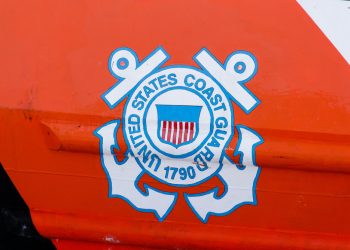The US Coast Guard Sector Anchorage, along with the US Coast Guard Marine Safety Detachment Dutch Harbor, and the Coast Guard Investigative Service agents are investigating the fishing vessel Mark I for knowingly discharging oil overboard in Canadian waters.
A Transport Canada aircrew spotted the Mark I sailing through the Canadian exclusive economic zone 97-miles off of Cape St. James, British Columbia, with an approximate 26-mile oil sheen trailing behind, July 7.
[smlsubform prepend=”GET THE SAFETY4SEA IN YOUR INBOX!” showname=false emailtxt=”” emailholder=”Enter your email address” showsubmit=true submittxt=”Submit” jsthanks=false thankyou=”Thank you for subscribing to our mailing list”]
USCG pollution response investigators and CGIS agents boarded the Mark I in Dutch Harbor, Friday. During the boarding they found evidence that bilge waste and oil had been discharged overboard.
The US Coast Guard Captain of the Port in Anchorage concluded that the Mark I poses a substantial threat to the marine environment and ordered the vessel to perform certain marine environmental actions and cleanup.
Vessels documented in the US are not allowed to discharge oil or oily water anywhere they may sail. Ships that discharge oil or oily waste within US waters are subject to the Clean Water Act. Those that discharge oil or oily waste outside of US waters are subject to the Act to Prevent Pollution from Ships.
Violating these Acts is a Class D Felony that can lead to up to 10 years confinement and a criminal fine up to $250,000. Violations can also cause civil penalties of up to $72,718 for each violation. Each day of a continuing violation constitutes a separate violation.




























































